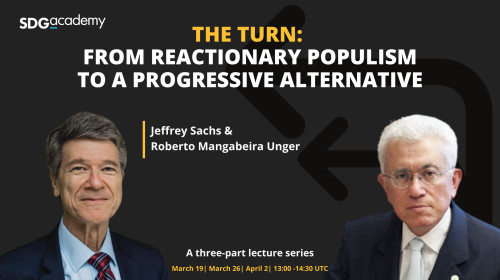This course on SDG 2 – Zero Hunger builds the student’s knowledge on the function of food and causes of hunger, as well as the underlying issues to and initiatives for this Sustainable Development Goal and it’s affected, vulnerable groups. The course will allow for the local application of learnings and the learner will conduct an interactive challenge on the Zero Hunger mission.
Faculty:
Larissa Demel is the current director of Youth Engagement for the Special Olympics Latin America, where she oversees youth innovation projects for inclusion and accessibility for people with disability. Larissa was also a speaker at HABITAT III, the bi-decennial United Nations Conference on Housing and Sustainable Urban Development, where she launched Urban Action, a youth initiative in collaboration with UN Habitat and AIESEC that set out to implement over 150 youth projects related to New Urban Agenda and SDGs within the first year of New Urban Agenda adoption. She has published papers on social innovation through youth action on the SDGs which is being used by over 50,000 young people in 126 countries and created a SDG social project framework for young people and has created the SDG 11 content on to the Young Person’s Guide to Saving the World.
Target Audience
Learning Objectives
1. Understand SDG 2 – Zero Hunger in the wider global context
2. Self-reflect on your values and attitudes about SDG 2 in the local context
3. Develop a simple plan of action to begin to create change in your local community








